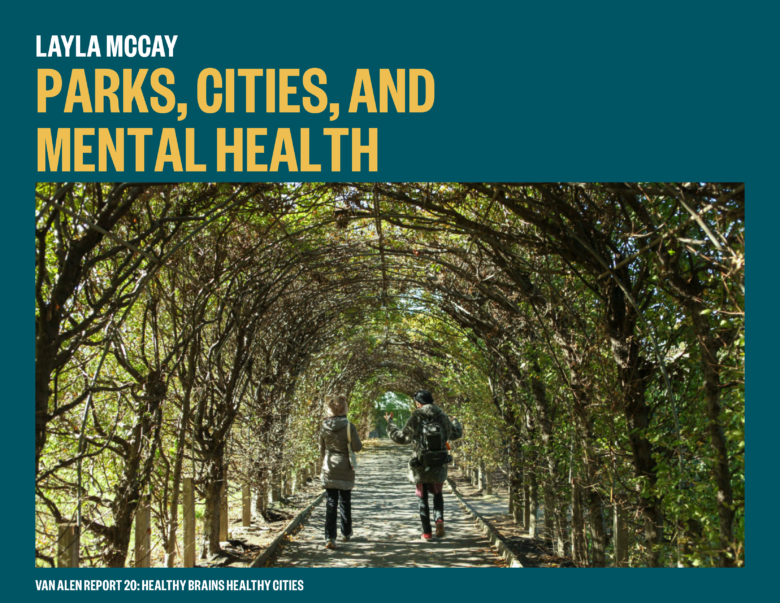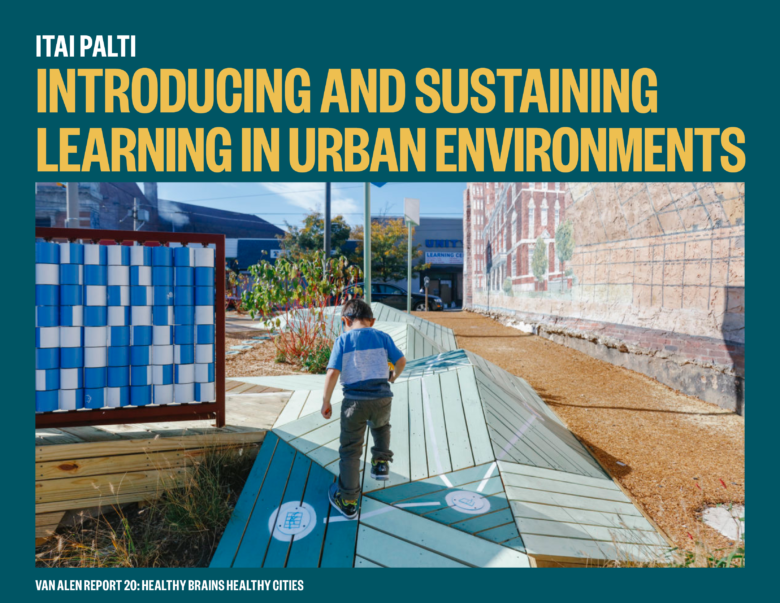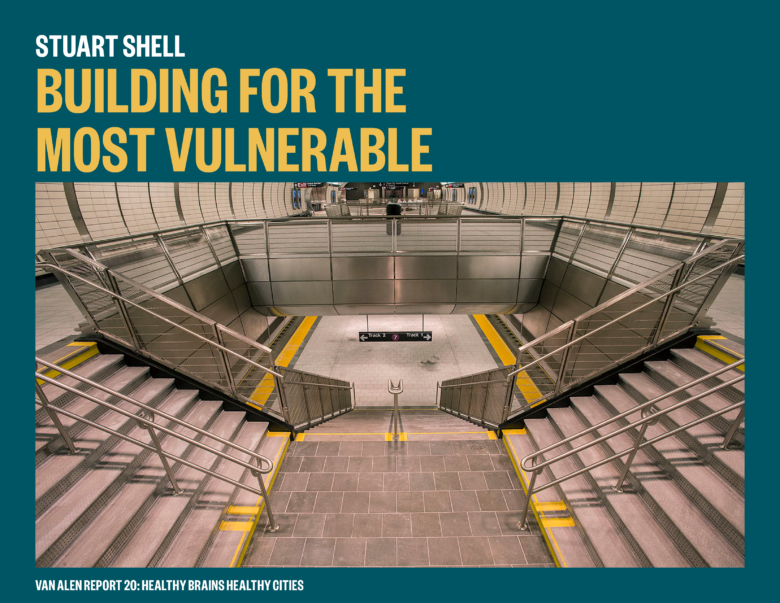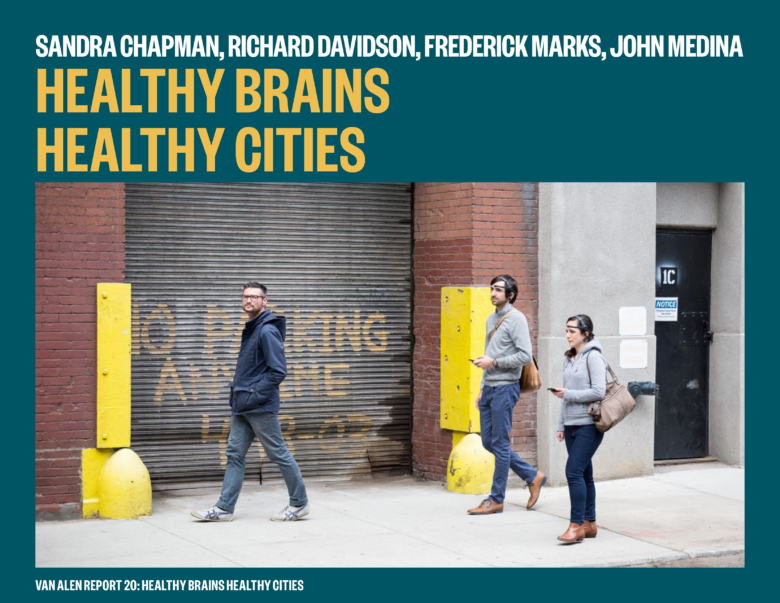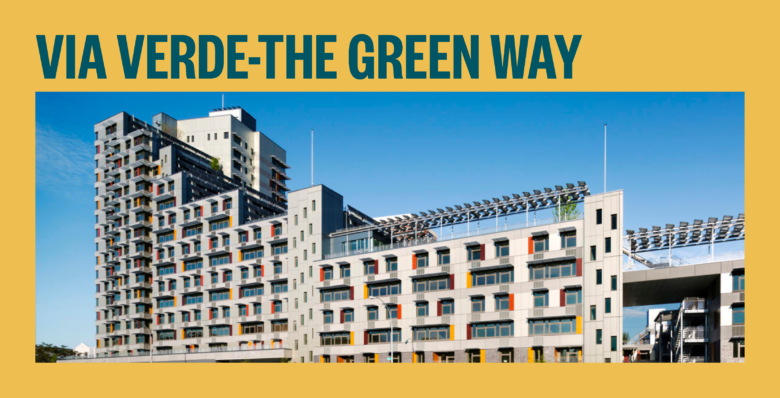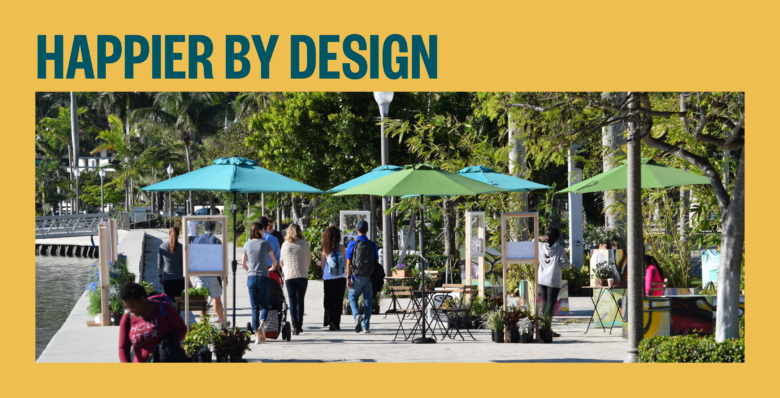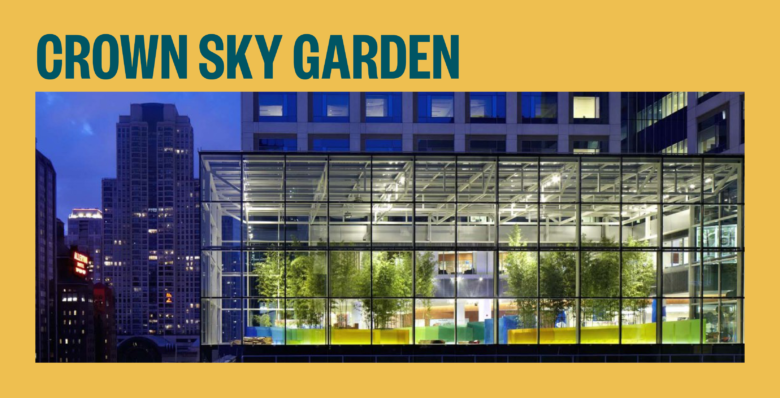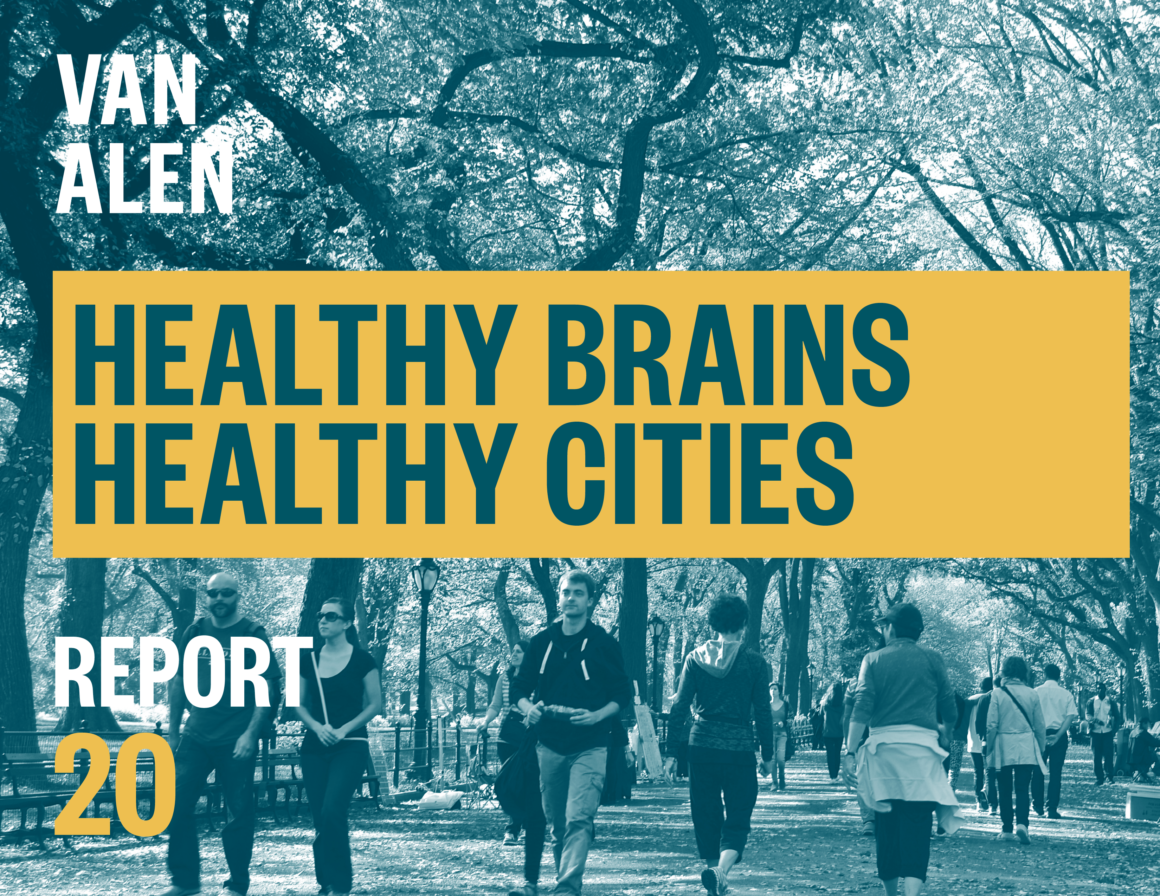

Cognitive and behavioral science research is revealing more and more about how cities impact people physically, emotionally, and neurologically. With more people expected to live in cities than ever before, this growing body of knowledge is most welcome. However, knowledge alone is not enough to produce better, healthier cities. Just as new technologies and scientific approaches have provided fresh insight into how cities impact the mind and body, it will take new thinking among city-makers to harness that information and re-imagine the role that design can play in promoting mental health and well-being.
-Andrew Brown, Associate Director of Research, Van Alen Institute

How can parks and nature influence mental health in cities? We speak to Layla McCay, Director of the Centre for Urban Design and Mental Health, about that relationship is studien and how greener, healthier cities can be designed from that knowledge.
Architect Itai Palti, director of Studio Hume and designer of the Urban Thinkscape project in West Philadelphia, discusses the ways the urban landscape can be designed in a way that stimulates brain development in early childhood.
Stuart Shell, architect and building scientist at BranchPattern, suggests ways designers can make themselves better advocates for the cognitively-impaired, while advancing a notion central to building a more equitable world: design that works for the most vulnerable among us is design that works well for all of us.

For Van Alen Report 20, we invited designers from around the world to share projects at the vanguard of using science-informed practices to design healthier cities. For each featured project, we asked the designers to identify the health impacts intended, and discuss how insights from neuroscience or psychology influenced the project’s design. We also consider how each project might advance both the conversation about evidence-based design, and the greater pursuit of designing healthier cities for all. These profiles have been adapted from the designers’ responses.

Sandra Chapman
Founder + Chief Director, Center for Brain Health at UT-Dallas
Fred Marks
President-Elect, Academy of Neuroscience For Architecture (ANFA)
Susan Magsamen
Executive Director, International Arts and Mind Lab at the Brain Science Institute, Johns Hopkins University
Sarah Williams Goldhagen
Architecture Critic, Author of Welcome to Your World
Hana Kassem
Principal, KPF

In this issue, we are thrilled to present perspectives from the following contributors:
FEATURED PERSPECTIVES
Dr. Michael Arbib
Professor of Biological Sciences, Biomedical Engineering, Electrical Engineering, Neuroscience and Psychology at USC
Dr. David Cantor, Director
Centre for Investigative Psychology at the University of Liverpool
Dr. Richard Davidson, Founder and Director
Center for Healthy Minds at University of Wisconsin-Madison
Alexi Marmot, Director
Bartlett Global Centre for Learning Environments, UCL Bartlett Faculty of the Built Environment
Dr. John Medina, Founding Director
Talaris Research Institute
Richard Wener, Director
Sustainable Urban Environments, Department of Technology, Culture & Society, Tandon School of Engineering of New York University
ADDITIONAL CONTRIBUTORS
Hansel Bauman, Gallaudet University
Dattner Architects
Tye Farrow, Farrow Partners
HLM Arkitektur
Itai Palti, Hume
KPF
Dak Kopec, University of Nevada Las Vegas School of Architecture
Man Made Music
MikYoung Kim Design
Multimer
Perkins+Will Human Experience Lab
Skidmore, Ownings & Merril (SOM)
WOHA
VAN ALEN REPORT 20 STAFF
David van der Leer, Former Executive Director
Andrew Brown, Editor, Associate Director of Research
Amelia Taylor-Hochberg, Guest Editor
Andy Sherman, Research
Jessica Wachtler, Intern

To explore past issues of Van Alen Report, click the button below.

To receive future articles and interviews from Van Alen Report, subscribe below:

